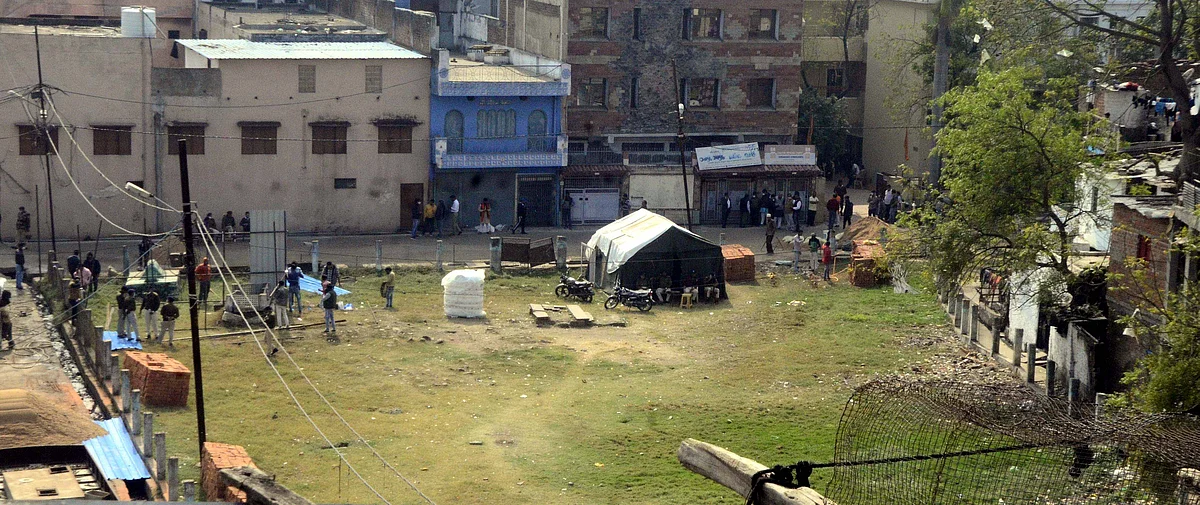BHOPAL: The high court has ordered that status quo be maintained on 6.51 acres in the vicinity of the controversial 30,000-square-foot land in New Sindhi Colony (Kabadkhana) which the RSS-affiliated Keshav Nidam Trust had taken into possession on January 17 amid a curfew.
With this order of the high court, residents cannot sell or purchase properties in various colonies, such as Rajdev Colony, New Sindhi Colony, Shanti Nagar Colony and Qazi Camp.
Advocate Jagdish Chhawani said, “In 2015, Mohammed Suleman and others had filed a petition in the MP Waqf Board tribunal stating that plots were demarcated in the burial ground and sold. Case was against Vishambhardas Rajdev, Amrit Pal Singh, Shyam Nagrani, MP Waqf Board, Mutalwai Committee Auqaf, Bhopal Municipal Corporation (BMC), Town and Country Planning (T&CP).
“According to the allegation, residential colonies were promoted with the nexus of officials by changing land use. So, the tribunal should declare the sale null and void on 6.51 acres. On February 18, petitioners had alleged in the high court that land use was being changed regarding 6.51 acres. So, HC judge Faeem Anwar ordered all the parties to maintain status quo till the disposal of the petition.”
Earlier, on Friday, the Madhya Pradesh Waqf Board Tribunal set aside the status of ex parte of the state government and restored status as defendant in case of controversy over the 30,000-square-foot land which the RSS-affiliated Keshav Nidam Trust had taken into possession on January 17 amid curfew, he added. The state government moved a petition in the tribunal demanding restoration of its status as defendant in the matter. Earlier, the high court instructed that status quo be maintained on controversial land.
Petitioner Mohammed Suleman had approached the Madhya Pradesh Waqf Tribunal demanding a stay on an order on a piece of land in Bhopal which was the cause of tension on January 17. The land is near the RSS divisional office Keshav Nidam, in the Kabadkhana area in the walled part of the state capital.
Petitioner Mohammed Suleman had said that the land was “hurriedly” handed over to the trust citing a high court order, but there is no such high court order in the public domain. According to the RSS-affiliated Keshav Nidam, the land was bought by the developer of Rajdev Colony in 1964 from a private person, whose family had two graves on this land.
The land was transferred to the trust, but the Waqf Board entered the land into its record 10 years later (after the transfer in the name of the trust). Around 20 years ago, permission was taken for the construction of a building on the land, which the authority later cancelled. The trust then approached the court, which ruled that the permission for the building cannot be cancelled as the said land was private property.






